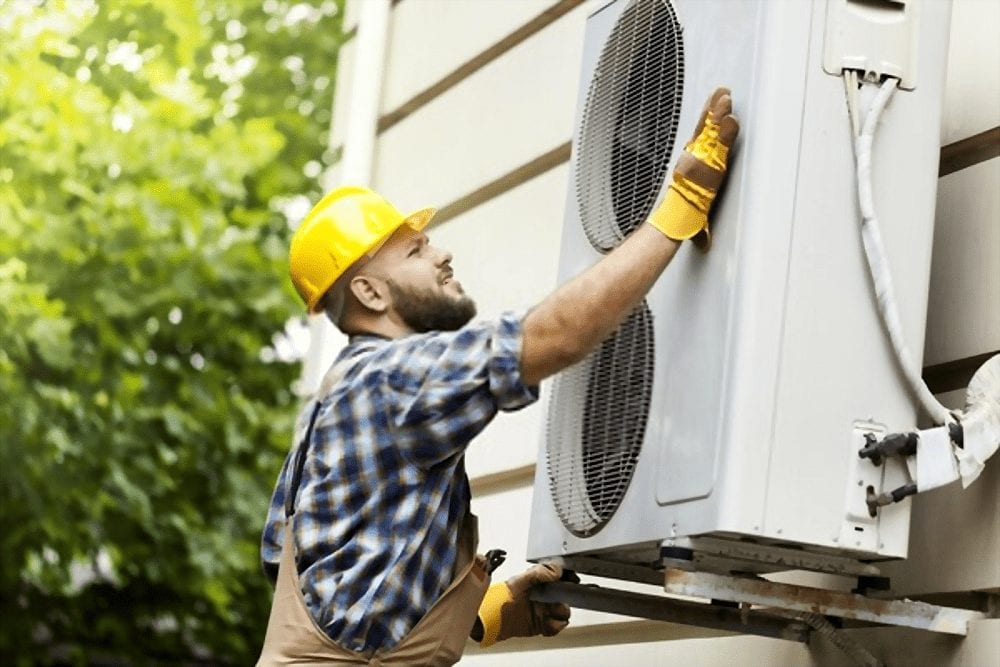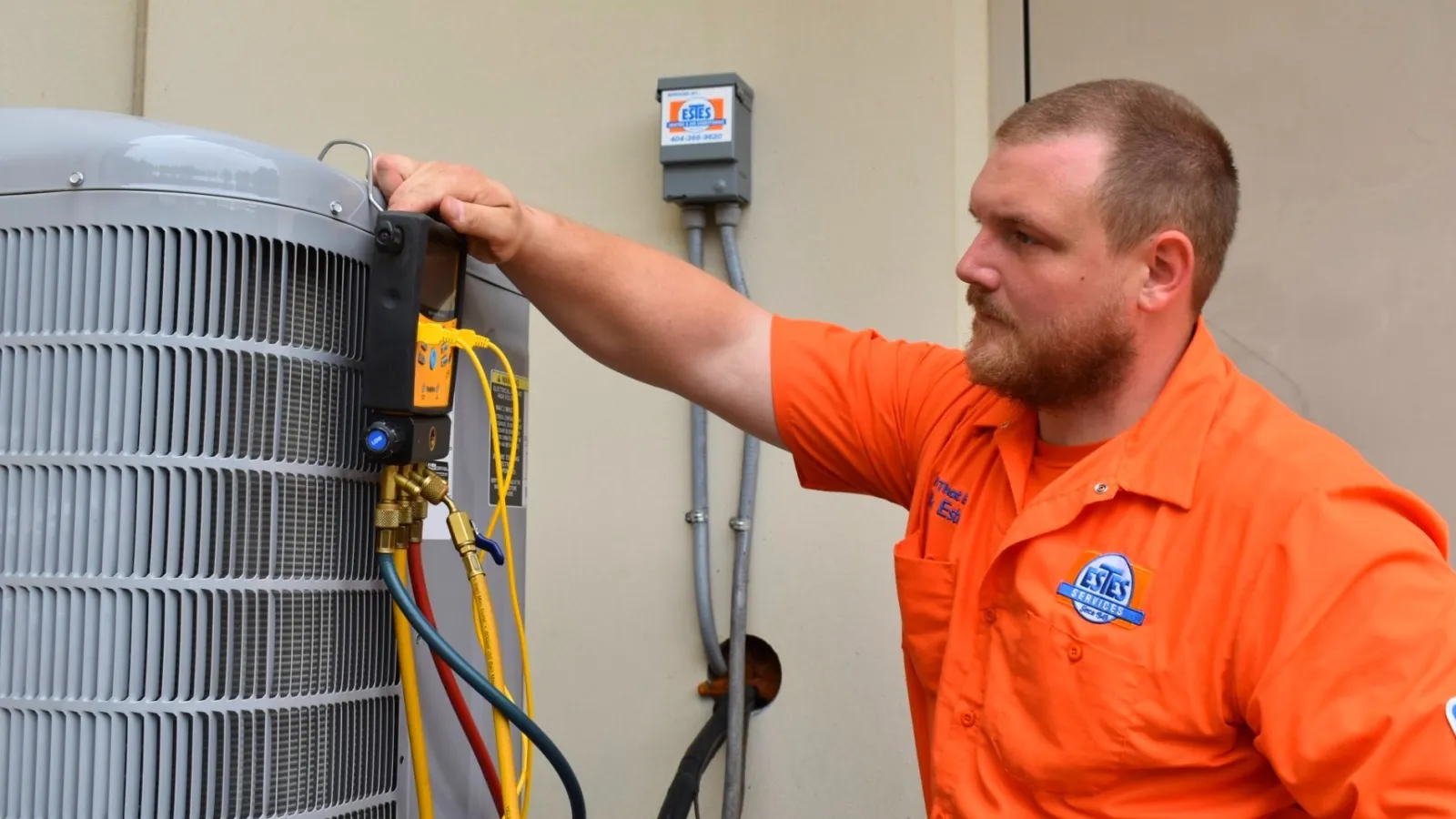DIY or Pro? heat pump service: What You Need to Know
DIY or Pro? heat pump service: What You Need to Know
Blog Article
Choosing In Between a Heatpump and Heater: Trick Considerations for Your A/c Demands
When assessing heating choices for heating and cooling needs, the choice in between a heat pump and a heating system can be complicated. Each system uses distinct advantages tailored to particular environments and energy efficiency goals. Comprehending these distinctions is necessary for making an enlightened selection. Key variables such as installment prices and ecological influence even more complicate the option process. Which alternative truly aligns with one's comfort and sustainability preferences? The complying with areas will certainly explore these factors to consider in information.
Comprehending Warmth Pumps: Exactly How They Function and Their Advantages
While several house owners consider various home heating options, comprehending just how warmth pumps function and their benefits can considerably influence their choice. Warmth pumps run by moving heat as opposed to producing it. In the winter, they extract heat from the outside air or ground and transfer it indoors, while in the summer, they reverse this process, cooling the home by eliminating warm outside. This double capability makes them functional for year-round climate control.One of the primary advantages of heatpump is their power performance. They use substantially much less electricity contrasted to typical furnace, possibly causing lower utility bills (heat pump service). Additionally, heatpump have a smaller sized carbon impact, making them an eco-friendly selection. They likewise need much less upkeep than standard systems, adding to long-term expense savings. In general, recognizing the technicians and benefits of heatpump can aid home owners make informed decisions concerning their home heating and cooling requirements
Checking Out Heaters: Types, Procedure, and Benefits
Furnaces can be found in different types, consisting of gas, electric, and oil versions, each with distinct functional devices. Understanding these distinctions is essential, as they affect performance and heating efficiency. Furthermore, heating systems provide many advantages, such as regular heat output and dependability in cooler climates.
Types of Furnaces
Heater can differ significantly in layout and procedure, with furnaces being a prominent choice amongst homeowners. There are a number of kinds of heating systems, each utilizing different fuel sources and modern technologies. Gas heating systems prevail, leveraging gas to produce warm efficiently. Electric heaters, on the other hand, utilize electric resistance to create warmth, commonly favored for their straightforward setup. Oil heaters, while much less common, work in areas with limited gas accessibility (ductless mini splits). Additionally, condensing heaters make best use of energy performance by capturing and recycling exhaust gases. Each kind runs with a system of warmth exchangers and ductwork to distribute warm air throughout a home. Comprehending the distinctions between these heating system types is important for informed cooling and heating choices
Advantages of Heaters
For property owners looking for trustworthy warmth during cold months, the advantages of heaters are considerable. Heating systems offer regular home heating, ensuring even temperature levels throughout the home. They are particularly reliable in extreme cold, often outperforming warm pumps in freezing problems. Numerous types, including gas, electric, and oil heaters, provide versatility to meet diverse needs and preferences.Furnaces additionally have a tendency to have reduced first installment costs compared to heatpump, making them a much more available option for numerous. Their robust design adds to a longer life-span, with several systems lasting over 15 years with proper maintenance. Additionally, contemporary furnaces are usually outfitted with sophisticated technology for enhanced effectiveness, which can cause minimized power expenses. In general, furnaces remain a reliable choice for reliable home heating.

Power Performance: Comparing Warm Pumps and Furnaces
When contrasting energy performance between heatpump and heaters, the Seasonal Energy Efficiency Proportion (SEER) plays an essential role in determining efficiency. In addition, an operational expense analysis exposes the long-term economic ramifications of each system. Recognizing these elements can lead home owners in making educated decisions about their home heating services.
Seasonal Energy Performance Proportion
Energy performance plays a vital function in the decision-making procedure between warm pumps and heaters, particularly when taking into consideration the Seasonal Power Efficiency Proportion (SEER) This metric measures the cooling efficiency of warmth pumps over a whole air conditioning season, giving a standardized method to review performance. Greater SEER rankings suggest greater power performance, translating to lower power consumption and lowered utility expenses. In comparison, heating systems are usually assessed using the Yearly Gas Utilization Effectiveness (AFUE) ranking, which shows heating performance. When contrasting these two systems, house owners ought to focus on SEER scores for heatpump, as they straight impact overall power financial savings and ecological sustainability. An extensive understanding of SEER can especially influence the long-lasting complete satisfaction and cost-effectiveness of the picked heating and cooling solution.
Operational Expense Evaluation
Understanding the operational expenses connected with heatpump and furnaces is essential for property owners evaluating their choices. Heat pumps generally provide higher power effectiveness, transforming electric energy into heat with minimal waste. This results in lower regular monthly utility bills, particularly in modest environments. Alternatively, traditional furnaces, especially gas designs, might have reduced upfront costs yet can sustain greater operational expenses gradually as a result of fuel prices and effectiveness ratings.Moreover, warmth pumps can function as both home heating and cooling systems, possibly minimizing the need for separate heating and cooling units. While preliminary financial investments for warmth pumps might be greater, their long-lasting savings in energy performance can make them a much more cost-effective selection for lots of houses. Mindful evaluation of regional energy rates is necessary to establish the very best option.
Installation Expenses: What to Anticipate for Each Furnace
Installment prices for heater can vary significantly in between warm pumps and heaters, influencing house owners' choices. Heatpump usually have higher in advance installation costs, generally ranging from $3,500 to $8,000, relying on the system dimension and complexity of setup. This consists of the exterior device, indoor handling system, and required ductwork adjustments. Alternatively, furnaces tend to have lower preliminary expenses, balancing in between $2,500 and $6,000, which can be appealing for budget-conscious house owners. Nonetheless, setup costs can increase if considerable ductwork is required.Moreover, explanation the choice of gas type for furnaces-- gas, propane, or electric-- can also impact installment costs. While heatpump supply power effectiveness, their initial financial investment might deter some purchasers. Eventually, reviewing installation costs alongside long-lasting cost savings and performance will aid house owners in making notified choices about their home heating systems.
Environment Considerations: Which System Carries Out Much Better in Your Area
How do environment conditions influence the efficiency of furnace? The performance of heatpump and furnaces can vary considerably relying on the regional environment. In modest climates, heat pumps excel by successfully transferring warmth from the outdoors air, making them an energy-saving choice. Their performance reduces in very chilly temperature levels, where they may have a this page hard time to extract adequate warm. On the other hand, heating systems, particularly gas models, give constant and trustworthy warmth no matter outdoor problems, making them more effective in cooler regions.In locations that experience milder winters, heatpump can operate effectively year-round, giving both heating and air conditioning. On the other hand, areas with extreme wintertimes often take advantage of the robustness of heating systems. Eventually, understanding the regional climate is necessary when determining between a heatpump and a heating system, as it directly influences their operational performance and total efficiency.
Maintenance Demands: Long-Term Treatment for Heat Pumps vs. Furnaces
While both warmth pumps and furnaces call for normal maintenance to guarantee peak efficiency, their particular requirements and treatment regimens differ significantly. Furnaces commonly require less constant focus, with yearly evaluations sufficing to check for gas leakages, clean filters, and assess total functionality. Their less complex layout often allows for uncomplicated repairs.In comparison, heatpump require biannual maintenance as a result of their dual role in cooling and heating. This includes Discover More cleaning coils, inspecting cooling agent degrees, and guaranteeing that both the exterior and indoor units operate at their best. Furthermore, heatpump maintenance usually includes even more detailed components, making specialist maintenance essential.Neglecting maintenance can bring about decreased efficiency and boosted energy expenses for both systems. Ultimately, property owners must think about these long-term treatment demands when picking between a heat pump and a furnace, as positive upkeep can prolong the lifespan and performance of either system substantially.
Environmental Impact: Choosing a Sustainable Home Heating Choice
The ecological impact of heater is an essential assessment for house owners looking for lasting alternatives. Heatpump are typically much more energy-efficient than conventional heaters, as they move warm instead of create it, greatly lowering carbon exhausts. By making use of sustainable power resources, such as air-source or geothermal heatpump, property owners can better lessen their environmental footprint.On the other hand, gas heating systems send out greenhouse gases and add to air pollution, though they typically provide higher warmth result. Advancements in innovation have actually led to the development of high-efficiency heaters that minimize emissions.Ultimately, picking a heating system entails evaluating effectiveness against environmental influence. Property owners are urged to review regional power resources and rewards for renewable systems, guaranteeing an option that straightens with both individual convenience and environmental responsibility. The decision impacts not only prompt comfort but additionally long-lasting sustainability and environmental wellness.
Regularly Asked Questions
For How Long Do Warmth Pumps and Furnaces Generally Last?
The life-span of warmth pumps usually ranges from 15 to twenty years, while heaters can last between 15 to thirty years. Normal upkeep significantly impacts their durability and effectiveness in giving home heating services.
Can I Use a Warmth Pump in Incredibly Cold Climates?
Heatpump can operate in incredibly cold climates, however their effectiveness diminishes as temperatures decrease. In such problems, additional home heating sources might be necessary to preserve comfortable indoor temperature levels and ensure peak efficiency.

What Is the Sound Level of Heat Pumps Versus Furnaces?
The sound levels of warmth pumps and heating systems vary significantly. Typically, heat pumps run even more silently than traditional furnaces, making them more suitable for those conscious seem, while heaters may create louder operational noises throughout home heating cycles.
Are Warm Pumps Suitable for Both Home Heating and Air conditioning?
Heatpump are certainly ideal for both cooling and heating (heat pump service). They function by transferring warmth, offering effective temperature control year-round, making them a versatile option for home owners looking for an all-in-one heating and cooling option
What Dimension Heating System Do I Required for My Home?
Determining the suitable size furnace for a home calls for examining elements such as square footage, insulation top quality, regional climate, and the home's format. Consulting a professional can guarantee an accurate assessment and perfect comfort. Warmth pumps usually use higher energy effectiveness, converting electric power right into warmth with minimal waste. In modest environments, warm pumps stand out by successfully moving warmth from the outside air, making them an energy-saving alternative. Conversely, heaters, particularly gas models, offer regular and reliable heat no matter of outdoor conditions, making them better in colder regions.In areas that experience milder winters, warmth pumps can operate properly year-round, supplying both heating and cooling. Heat pumps are typically extra energy-efficient than conventional furnaces, as they transfer heat instead than create it, significantly minimizing carbon discharges. By utilizing renewable power sources, such as geothermal or air-source heat pumps, homeowners can further reduce their environmental footprint.On the various other hand, natural gas furnaces send out greenhouse gases and contribute to air pollution, though they typically offer greater warm outcome.
Report this page